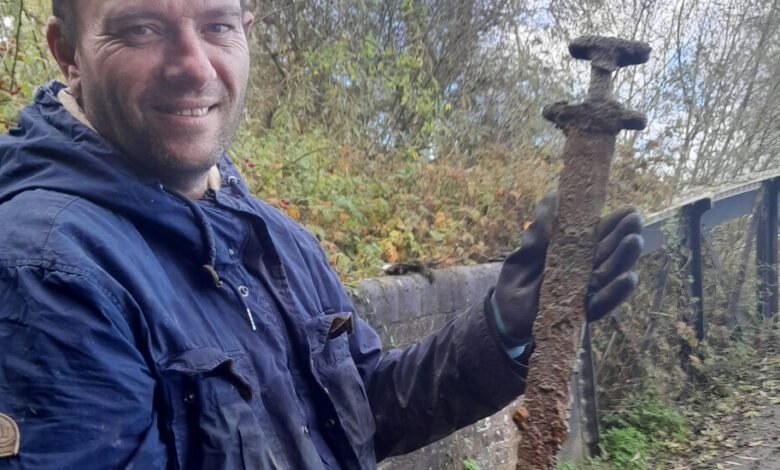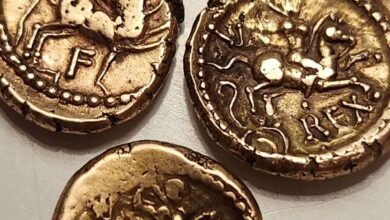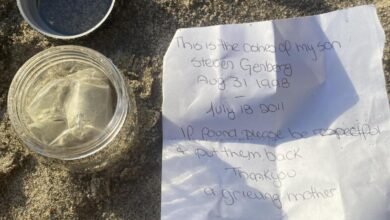This treasure hunter’s latest find? A 1,000 year old Viking sword.

The long, thin piece of metal looked like a scaffolding pole when Trevor Penny saw it on the banks of an English river last November.
That wouldn’t have surprised Mr Penny, who has unearthed household items, tools and other metal waste in the waterways near his home in Oxfordshire while pursuing his hobby of magnet fishing. (Magnet fishing is pretty much what it sounds like: a powerful magnet is attached to a rope, which is then thrown into a body of water.)
But his find that day was much more dramatic: a rusty Viking sword that had been lying there for more than 1,000 years.
The sword, found in the River Cherwell and identified by an archaeological group that tracks public finds, most likely dates from between 850 AD and 975 AD. Mr Penny said he had given it to Oxfordshire Museums this week Service handed over where it is located is expected to be issued after restoration.
When Mr Penny, 52, realized what he had found, he contacted a local official responsible for identifying the archaeological finds to the public.
The discovery is “another piece of the puzzle that can shed light on our shared heritage,” said civil servant Edward Caswell, who documents Oxfordshire finds for the British Museum’s Portable Antiquities Scheme. Further analysis was needed, he warned, but experts confirmed that the sword matched other swords from the period.
“We are finding Viking weapons, including swords, deposited in rivers in England,” said Jane Kershaw, associate professor of archeology at the University of Oxford. About 70 such swords have been found in Britain, she said, and although Mr. Penny’s sword was accidentally dropped, they were also often deliberately thrown into waterways as part of a ritual.
“Rivers were considered gateways to other worlds where gods and other creatures or spirits might live,” she said, adding that archaeologists interpreted such rituals as Viking requests for protection or good fortune, perhaps in battle.
Many such weapons have been found in the north and east of the country, said Dr. Kershaw. She called the sword a “rare example” of Viking activity in the area.
“It’s outside the normal discovery zone for these weapons,” she said. “But the Vikings were active in this area. There’s a lot we don’t know about their activities.”
Hobbyists are increasingly making important discoveries, and Dr. Kershaw said it is crucial that they report their findings. “This is extremely valuable information,” she said. “As long as they record it, this is archeology that would otherwise be lost.”
But who owns artifacts found today can be a tricky question and may depend on whether they are classified as “treasure.”
Under the Treasure Act in the UK, metal objects that are more than 300 years old at the time of discovery must be reported to the authorities within two weeks. Museums have the ability to claim objects, and finders and landowners may receive a reward after an object is valued if it is considered treasure.
Mr Penny found the sword on property owned by the Canal & River Trust, a charity that manages many of England’s inland waterways. The group has banned magnet fishing on its property, saying it can be “dangerous” and that sharp objects could cause problems for visitors.
But the charity called the sword an “exciting find” and has agreed with Mr Penny to transfer any possible ownership rights to the sword to a local museum.
Since he started magnet fishing three years ago, Mr. Penny has helped dredge up other finds, including old railway tools and a grenade believed to be from World War II that authorities had to detonate safely.
“It’s a great way to meet people,” said Mr. Penny, who often takes the collected metal to a local scrapyard. “We get to talk to a lot of passers-by, all of whom thank us for cleaning up the environment.”
He reports his findings to a local magnet fishing group and has no plans to stop.
“I’ll keep fishing,” said Mr. Penny. “Hopefully with permission.”



